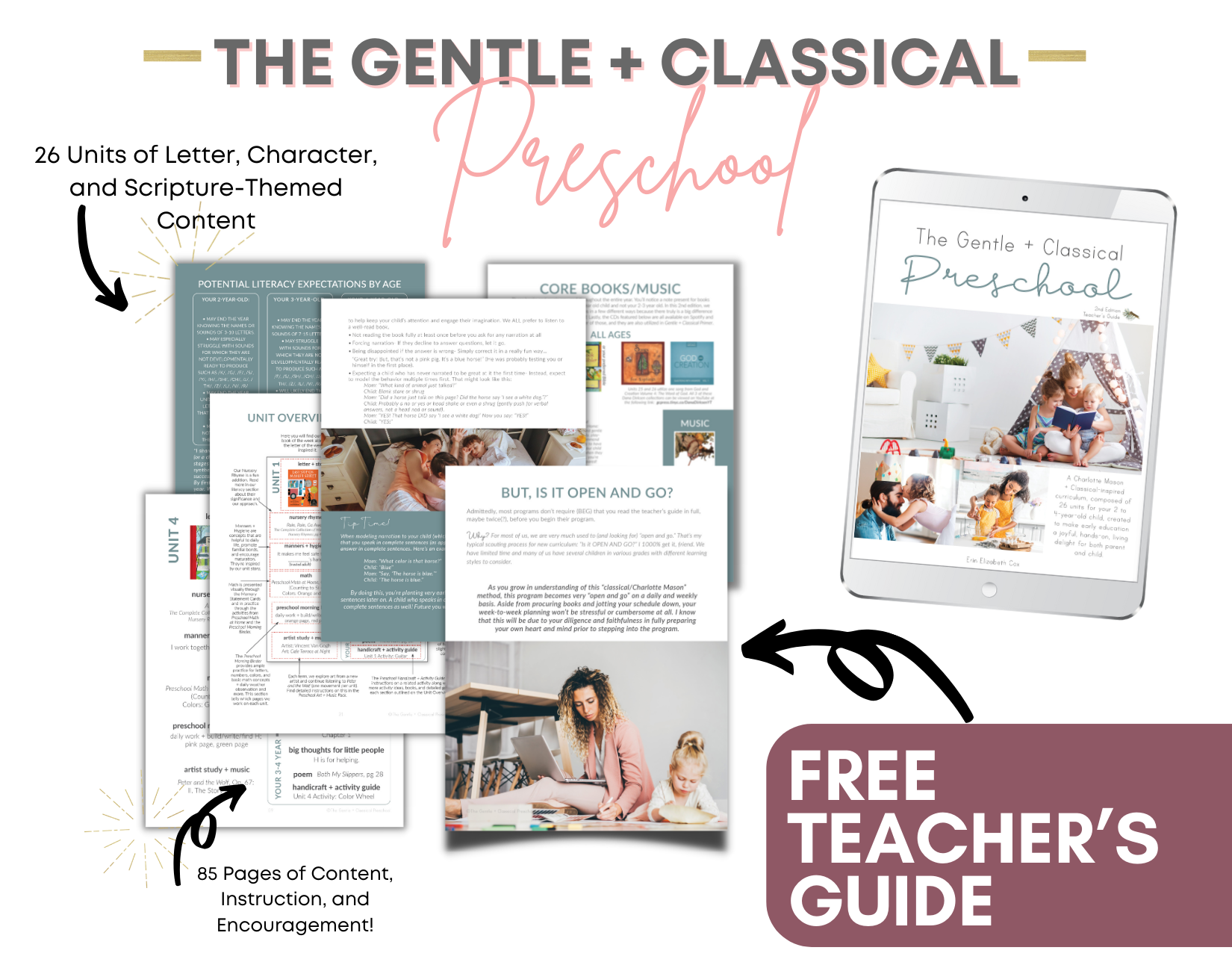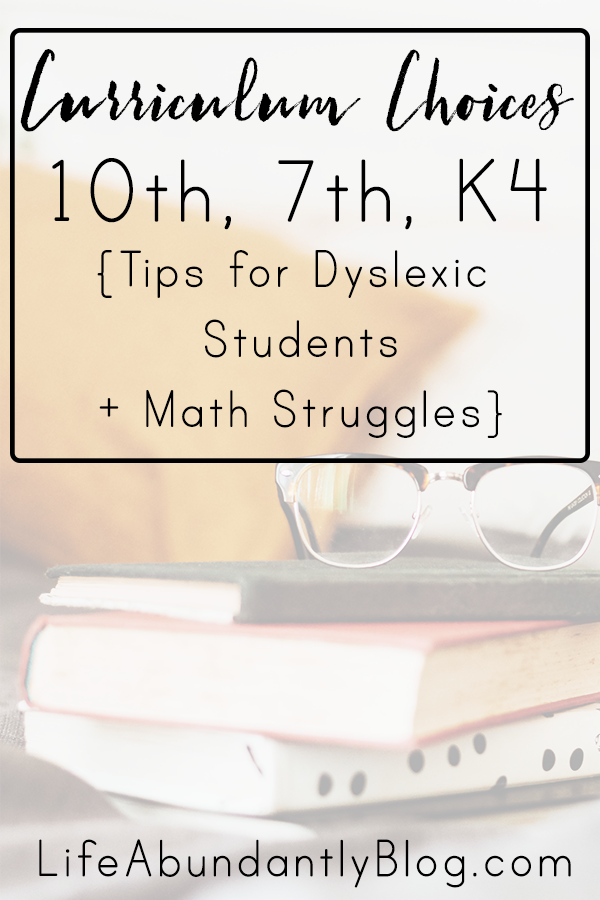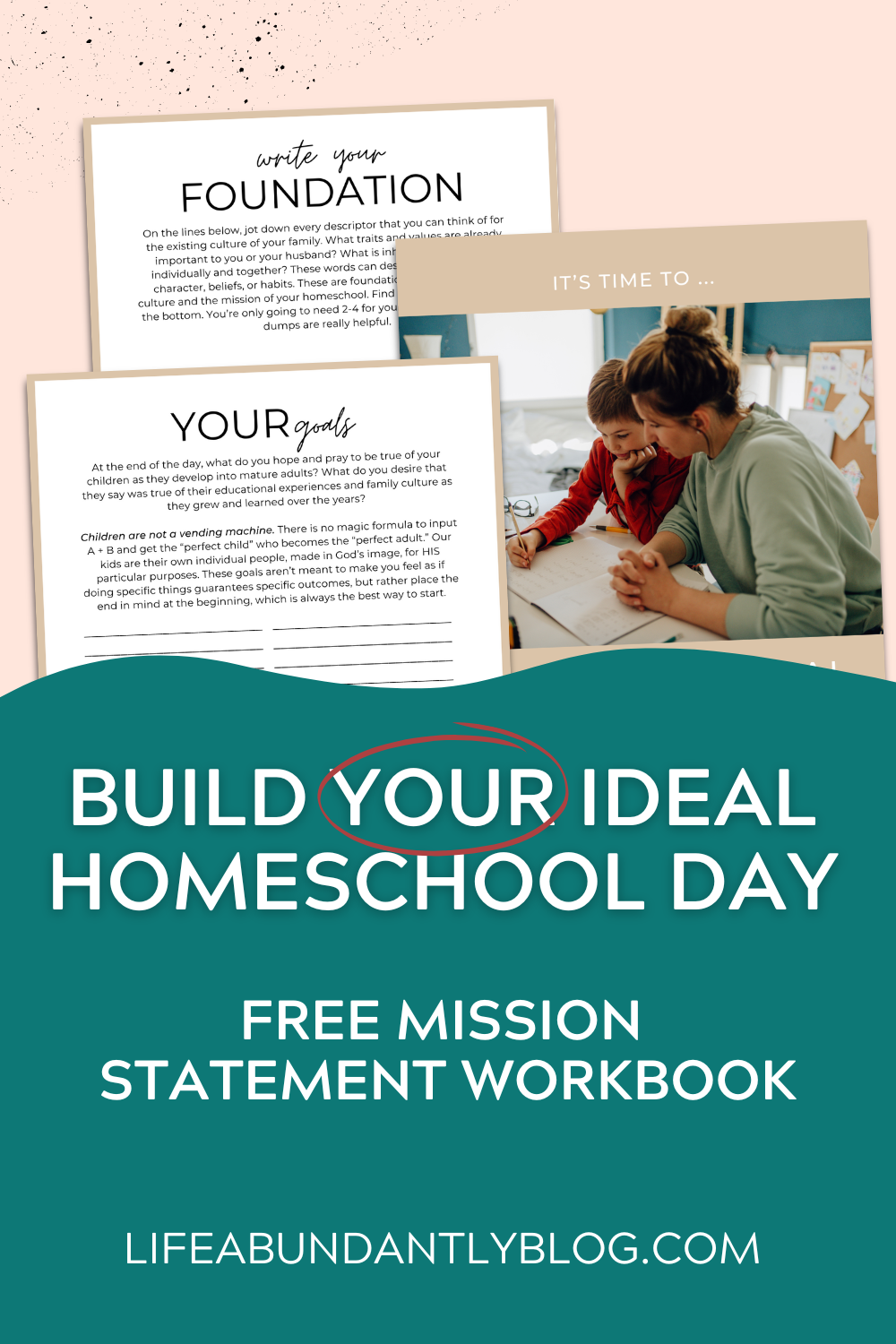When You Want to Quit Homeschooling (Part 4 of 5)
/Here we are! We are almost finished! This has been a long series, but rightfully so. The idea of drastically altering how you approach education for your children is no small matter. We are now on the final "question" of this series, question 3.
Let's get down to business ;)
Question 3: Should I just take a break from homeschooling? Will that fix whatever the problem is?
I want to explore a few different aspects of this question, but I want to assert up front that there is not a right or wrong answer. As has been the case in every portion of this series, what's right for YOU and your family, your season, your child, will not be the right answer for everyone else. This is a journey of finding YOUR place in homeschooling and being certain that it truly is best for everyone involved.
Section 1: So- should I take a break from homeschooling? What does a "break" even mean?
There is an old idiom- often attributed to Charlotte Mason, that actually precedes her works- that says "a change is as good as a rest". In Charlotte's own words, in speaking about when to move from the study of one subject to another, she says:
“When a child grows stupid over a lesson, it is time to put it away. Let him do another lesson as unlike the last as possible, and then go back with freshened wits to his unfinished task…” (Vol. 1 p. 141)
Let's focus on this: "let him do another lesson AS UNLIKE THE LAST AS POSSIBLE." My suggestion, as you explore this idea of a "rest" is that, rather than stopping homeschooling permanently, maybe simply a way of doing things, as unlike how you've been doing them as possible, could be in order.
Here are some questions to ask yourself :
Are we currently doing traditional "school at home?"
Have I chosen a particular educational philosophy and stuck adamantly with it, even despite our struggles?
Does our current format for doing school ALIGN with the specific learning abilities and personalities of my students?
Does our current format for doing school sound great but leave me feeling bored and lifeless?
Do I routinely find myself ENJOYING school? Or dreading it?
Does anyone in my home enjoy how we implement our school days?
How many hours are we spending on school each day?
Have I been doing school the "right" way (or according to someone else's expectations), but find that it's destroying my peace and joy?
What you may find as you work your way through those questions is that you've allowed a certain educational philosophy, a desire to do things the "right" way, someone else's expectations for how you ought to do school, or the pressures of "getting it all done" to steal your joy, and thusly your children's joy, in their homeschool experience.
You may have a homeschool philosophy you absolutely love- but also- it could be a TERRIBLE fit for your child's learning style or abilities. You may have set state requirements that you have to meet, and fear over not meeting those could be putting you in a stressed-out disposition? (Have you ever lost your cool on a kid and realized later it was over ANXIETY about not doing well enough?) You may have followed a recommendation from a homeschooler that you greatly admire, but it's resulting in frustration and tears. Or maybe you even invested a lot into a program that has had that same, frustrating result, but you can't bear to have "wasted" the money?
There are many, many reasons for going into homeschooling with a certain expectation, philosophy, and plan in mind- many good reasons. However, sometimes those plans/programs don't work for us IN THE SEASON WE ARE IN. That's OK, friend! I promise!
Changing programs, changing how your day is scheduled, changing where you do school, changing how much time you spend on school, changing the days of the week or the months of the year you do school- are all afforded to us by the freedom we inherently have in homeschooling. There's no sense in beating a dead horse (my Alabama just came out :).
If it's not working, it's NOT working. And in the wise words of Elsa- "Let it go... let it go!" You may need to let it go for a month, or for 6 months or forever... whether it's the expectations you've formed, the schedule you developed, the curricula you purchased, or the philosophy you bought into.
What's important is that you realize that you don't have to always just do things the one way. There's so much freedom in homeschooling (and IN CHRIST!). So yes- maybe take a break. Work hard and pray hard to identify the root cause of the frustration, overwhelm, or ineffectiveness you're currently running headlong into- and just lay it aside.
There are multiple options for what a "break" can look like:
Change from doing "traditional" school to a more Charlotte Mason or unschooling approach OR vice-versa (if your kid LIKES workbooks, let him do workbooks for a while).
Lay aside any books your child hates and ask them what they're interested in learning about.
Lay aside workbooks and pick up living books (or vice-versa).
Shorten each lesson from 45 minutes (or until they "get done") and set a time for 20 minutes (based on age).
Reorder the sequence of subjects so that you use different parts of the brain. (For example, don't follow 30 minutes of reading literature with 30 minutes of reading history. Instead try reading history, written narration, art, math, music, reading literature, oral narration, poetry, science, nature study... all the while utilizing different parts of the mind as they shift from one activity to another.)
Reduce your schedule from 8 subjects to 3 and then spend as much time out of doors and on field trips as possible.
Consider schooling year round.
Try a schedule where you school for 6 weeks then take a break for 2 or school for 4 and break for one. You don't have to choose a traditional school calendar.
Outsource a conflict-ridden subject to a co-op, older child, spouse, or tutor.
Section 2: Will a break even help?
The short and long of it is: Yes and No. I know- super helpful, right?
Breaks can be a breath of fresh air for everyone. Sometimes we can get so wound up by conflicts in our school, roadblocks we can't seem to overcome, outside stresses, constant interruptions, details over a move or home purchase, feeling inadequate, financial or marital issues, health problems, new babies, ailing parents, judgment from others, concern over progress... (on and on) that we can't get out of our own way.
Some of those examples are self-imposed and others are outside of our control. So that's the first big question for self-examination:
What is the #1 cause of the overwhelm that I'm feeling at this moment? And quickly followed by: Is this a "problem" that I've created with worry and fear and expectations or is this outside of my control?
If the season that you are in has you overwhelmed by problems that you can't do anything about, then yes- an actual break may make everything better. What you'll have to weigh is the length of this break.
Is this circumstance going to last longer than 2-3 months? If not, then take a legit break. Stop ALL school and stop all of your expectations for school. Take a summer, spring, fall, winter break. Do this for two weeks or two months. Your children will not "fall behind" and have their lives ruined because you took 3 months from school when they were in the 5th grade (or 9th grade) to grieve a lost loved one, welcome a new baby, take care of an ailing grandparent, let Mom recover from a surgery, or let Mom and Dad work to heal their marriage. God's grace is more than sufficient for these types of situations.
Is this circumstance going to last longer than 2-3 months? Have you (or a close family member) fallen ill and your primary role will be for the care of that person or yourself? Are you divorcing and will have to return to the workforce? Whatever the circumstance that is clearly a "big life change", you'll still have to make a prayerful decision. What's important is that you realize that LIFE is the best homeschool. I'm not in favor of dumping education and wholeheartedly saying "life is enough", especially if life is filled with doctor's appointment or household responsibility for years. What I am saying is that if you get creative enough (depending on your child's age), you can probably still homeschool around these circumstances. These aren't deal-breakers. They are challenges, and with prayer, creativity, and reaching out to your homeschool community, you can most likely find solutions to living life through this trial and still educating your child at home.
What if the challenges you're facing right now are within your control? What if you're feeling totally overwhelmed due to your own expectations, worry, and fear? In this situation, I would ask you to reflect on two questions:
Is there a character or sin issue, in myself or my child, that has me in this situation?
OR
Do I simply need time to regroup, shift to a new educational philosophy, learn about different programs, learn about how to address various learning styles or learning disabilities?
If the first question is a YES, then you will have to face that head-on. With faithful prayer and identification of the root sin issue, this can absolutely be overcome. There's no sin in you or your child that God cannot help you resolutely deal with. The fact of the matter is that you'll have to do the hard work of laying it at his feet again and again.
If the latter is the problem... If you're truly, truly in a bad place and on the verge of having the kids at the bus stop next week, just stop school. Take the time to breath, rest, reset.
Take a breather and consider the following:
Is my child being over-challenged or under-challenged?
Do we need any type of evaluations for vision problems, hearing problems, or learning disabilities that I've been putting on the back burner out of fear?
Have I taken the time to observe how my child learns (through doing, seeing, or hearing)? And how I can accommodate that during our day?
What are some other educational philosophies or paradigms that peaked my interest but I was concerned they were "too different" from mainstream education?
How can I rework our schedule to accommodate a child who is/is not a morning person? (Or a Mom for that matter!)
There are many, many things to consider during this break. Don't be scared to question every aspect of your day, philosophy, or motivation. When you get to a rough spot, sometimes you just need to scrap everything and start fresh with new vision! That's SO OK! It doesn't make you a "bad homeschool Mom"... it makes you AN EXCELLENT homeschool Mom! Only with humility (which is so beautiful to God) will we willingly lay down all of our well-laid plans and come before Him, asking him to help us start NEW, with new wisdom and new vision.
Homeschool is not something you just start out doing "right" and keep going. NOPE. Homeschool is a journey, for Mom and student. It's filled with chaos, questions, a little paranoia and fear, and incredible GROWTH- for everyone involved. The entire atmosphere of your family will shift. What you thought was best will change, your overall goals will change, how you want to manage your day and home will change- we are ALL growing, all learning, all shifting, all the time.
We expect growth, character development, and fruitful knowledge for our children (it's our entire goal!), but it's even more needful and righteous to expect it of OURSELVES. This is NOT just about their education.
You're almost done, friend! In part 5 I will suggest one idea that isn't exactly a popular notion in the homeschool community. Don't miss it!


























